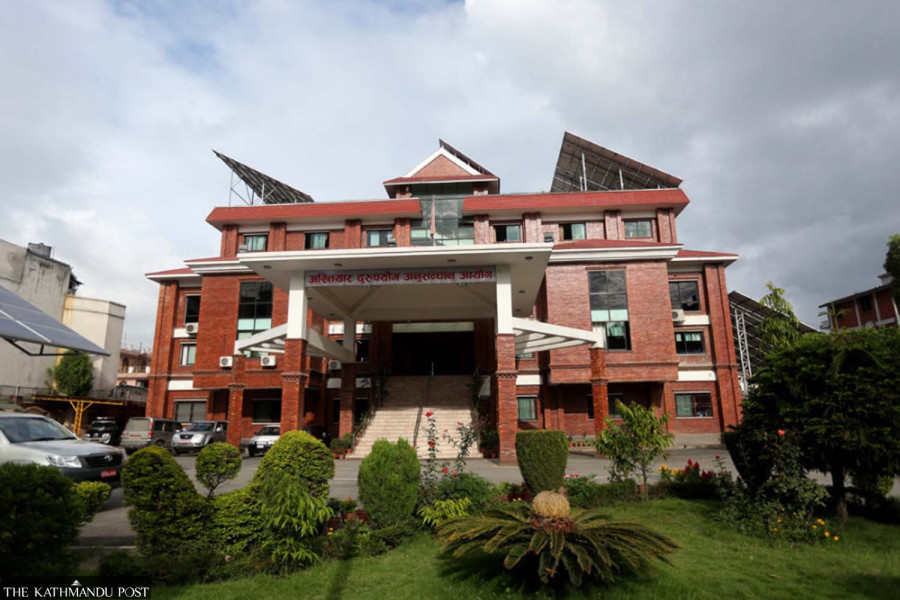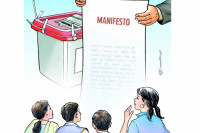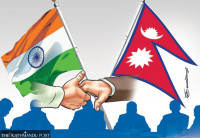National
Bill aimed at tackling private sector corruption gets National Assembly nod
Once the bill is endorsed by the lower house, the Commission for the Investigation of Abuse of Authority will be able to investigate private firms linked to public interest.
Prithvi Man Shrestha
The National Assembly has passed the Commission for the Investigation of Abuse of Authority Act-1991 bringing the part of the private sector into the purview of the anti-graft body.
The move by the upper house has partly addressed the long-standing demand of the commission for a wider jurisdiction including powers to investigate private sector corruption.
But the private sector has long been opposing such a provision claiming it would affect investment decisions of the private sector and discourage investment.
As a party to the United Nations Convention Against Corruption, Nepal has an obligation to address private sector corruption in one way or another as it calls for preventive measures and criminalisation of the most prevalent forms of corruption in both public and private sectors.
Rajendra Phuyal, secretary at the National Assembly, confirmed that the upper house on Monday passed the bill to amend CIAA Act-1991 with a provision that the commission would have authority to investigate private sector bodies which are connected with wider public interest.
He said that the newly endorsed bill has widened the definition of public entities by incorporating the entities wholly and partly owned by the government, banks and financial institutions, commissions, corporations, academies, and councils, among others.
The CIAA which faced curtailment of jurisdictions after the new constitution was promulgated in 2015, could gain new powers if the House of Representative also endorses the bill.
The constitution has also curtailed the powers exercised by the commission to investigate and prosecute public officials for improper conduct which includes abuse of authority.
“The decision to subject the private sector under the CIAA’s jurisdiction is also aimed at fulfilling Nepal’s international obligation as a party to the UN convention against corruption,” said Phuyal.
According to the UN Convention Against Corruption, to which Nepal is a signatory, member countries should take measures to prevent corruption involving the private sector, enhance accounting and auditing standards in the private sector and, where appropriate, provide effective, proportionate and dissuasive civil, administrative or criminal penalties for failure to comply with such measures.
In order to achieve these ends, the convention has called for measures to deepen cooperation between law enforcement agencies and relevant private entities and promote development of standards and procedures to safeguard the integrity of relevant private entities, including codes of conduct.
Prevention of conflicts of interest, promotion of the use of good commercial practices among businesses and in the contractual relations of businesses with the state, and prevention of the misuse of procedures regulating private entities are other measures included in the convention.
It calls for preventing conflicts of interest by imposing restrictions, as appropriate and for a reasonable period of time, on the professional activities of former public officials or on the employment of public officials by the private sector after their resignation or retirement.
The Asia Pacific Group on Money Laundering, which has been conducting mutual evaluation of Nepal’s compliances to international standards on money laundering, has pointed out Nepal’s failure to criminalise corruption involving the private sector as one of the country’s deficiencies in complying with the standards on anti-money laundering and terrorist financing, according to a government official.
With the private sector concerned over the provision, endorsement of the bill with such provision might be hard nut to crack at the House of Representatives.
“Leaders, particularly from the Nepali Congress were vehemently against bringing the private sector under the purview of the CIAA,” a National Assembly official said.
Phuyal said along with a bill to amend the CIAA Act, another bill to amend the Corruption Prevention Act-2002 was also endorsed by the National Assembly on Monday.
There are divergent views among stakeholders on whether the private sector should be investigated by the CIAA for corruption.
Speaking at an event organised by the CIAA to mark its 32nd anniversary on February 11, Prem Kumar Rai, the chief commissioner, had called for an expanded jurisdiction to enable the commission to probe even improper conduct, issues related to conflict of interest, and private and non-governmental sectors as well.
But former CIAA chief commissioner Surya Nath Upadhyay told the Post last month that the state should not penalise the private sector for corruption so long as there is no involvement of government money, government officials or government institutions. “Otherwise, the private sector will feel hassled and discouraged,” he said.
Hari Bhakta Sharma, former president of the Confederation of Nepalese Industries (CNI) told the Post last month that the business climate would be severely affected if further control measures are brought against the private sector. “Nepal’s economy is already overregulated,” he said.




 15.12°C Kathmandu
15.12°C Kathmandu















